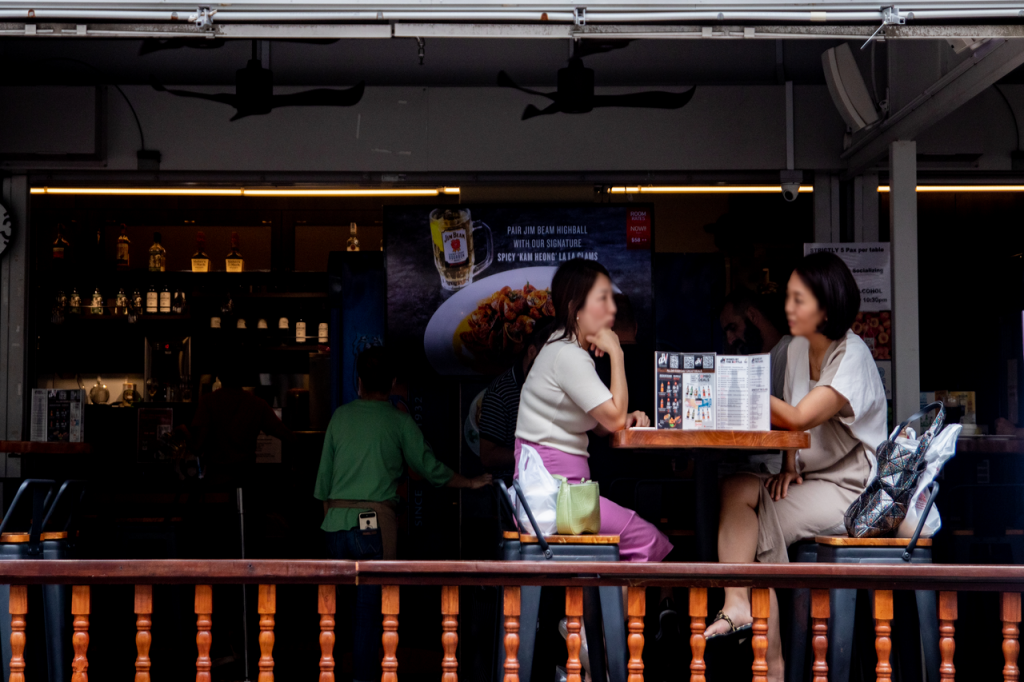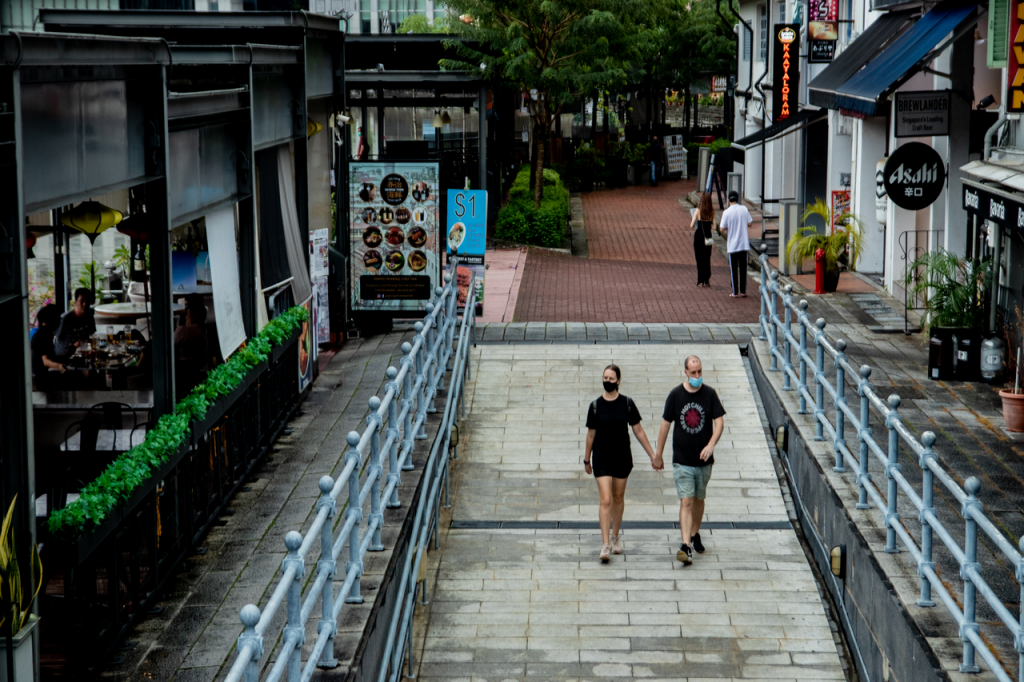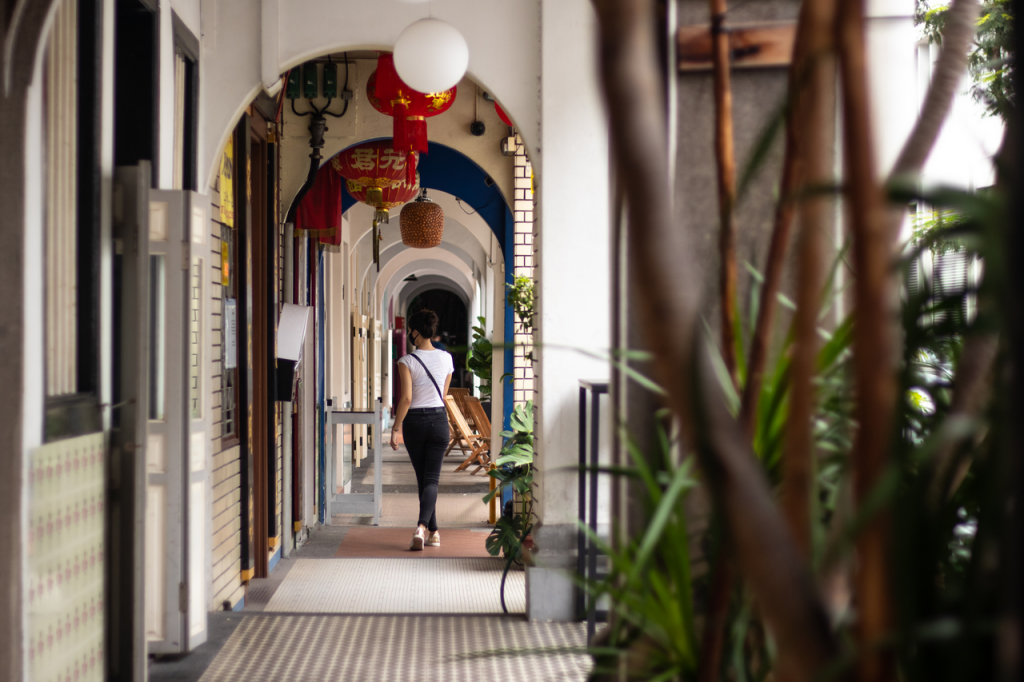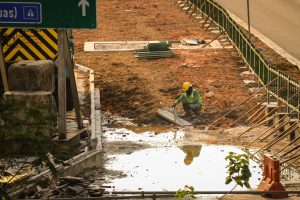All images by Liang Jin Tey.
Kate, Therese, and Lucia (not their real names) all hail from different countries and have never met each other, but they spoke of their predicaments to me in a common language of outrage and betrayal.
“An awful shock, “like a slap to the face”, and “just incredibly hurtful and unfair” were just some of the ways they described MOM’s latest policy announcement, and how it threatens to overturn their lives.
In early March, the Ministry of Manpower (MOM) announced sweeping overhauls to the Dependant’s Pass (DP), the permit issued to the spouses and children of foreigners on ‘E’ or ‘S’ Passes.
Currently, DP holders are exempt from prevailing work pass criteria, and need only a Letter of Consent (LOC) from MOM to work here. From May onwards, they will need to obtain work passes of their own, and meet criteria such as salary thresholds, quotas, and the foreign worker levy.
According to MOM, the change is intended to help align the criteria for DP holders with the broader work pass framework. When the changes take effect, they will be subject to the same requirements as ‘E’ or ‘S’ Pass holders, creating consistency in the hiring conditions for foreigners. MOM has also stated that they will work with employers and existing DP holders to faciliate the transition.
However, the changes will also make it significantly harder for DP holders—most of whom are women—to work here.
“I cried when I heard the news,” said Kate, who is Australian and moved to Singapore from Hong Kong five years ago. She is self-employed as a part-time writer, a job which would not allow her to qualify for an ‘E’ or ‘S’ Pass.
For her, not being able to work is out of the question. If she can’t figure out alternative arrangements, her family will probably relocate, which would uproot her young son from the country he was born and grew up in.
“I get that [the government] thinks it’s solving a problem, but they are really taking away opportunities,” she said. “I’ve been here five years and I’ve tried to stay in my lane, but you can’t just half live in a place.”

Evaluating the changes
The news has sent shockwaves through the expat community, with many scrambling to figure out their next move. But amidst the uncertainty, many expats—not to mention the industries and businesses which employ them—are questioning whether the changes are too heavy-handed.
As of 2020, there were around 11,000 working DP holders in Singapore. While no official data on this is available, anecdotally, many DP holders are self-employed, working in fields like life coaching, tutoring, or counselling, or starting their own small businesses. Those who are employees tend to be in flexi- or part-time roles like retail, while many work in international schools as TAs or substitute teachers.
In this context, if the rule change is meant—however indirectly—to incentivise hiring Singaporeans, it’s unclear that restricting DP holders’ ability to work will have any significant impact on this.
Given that working DP holders only amount to around 1% of all work pass holders, the number of jobs which stand to be ‘saved’ is minimal. And despite concerns over whether the DP is used as a back-door route to employment, the jobs most DP holders work in are ones which Singaporeans don’t normally compete for, or are self-created.
Therese, for example, is a wellness coach, while Kate described herself as a “creative type”, with a background in community-building and the arts. As a self-employed resume writer, she gets to tap into her skills in a way which helps others, while working only part-time allows her to spend more time with her family.
In theory, the rule changes contain an exception for DP small businesses: they must ‘create local employment’ by hiring at least one Singaporean or PR and paying them a minimum of S$1,400, plus CPF. But as the majority of DP entrepreneurs run sole proprietorships, this condition would make their businesses untenable, thus creating no employment at all.
“First, I don’t earn enough to justify hiring someone, but also, why would I hire someone to fill a position I created for myself?” bristled Therese. “It’s ridiculous. It just doesn’t make sense to me.”
Kate, meanwhile, pointed to the ‘multiplier effect’ that accompanies small businesses, like paying income tax, GST, and more consumer spending.
“If anything, I think the best outcome would be to enable the LOC programme and support sole proprietorships, not make it harder. We’re adding to the economy, not taking jobs that would have gone to locals,” she said.

Gender equality in the expat household
Being a DP holder entails more precarity than the term ‘expat’ might normally suggest. While ‘expat wife’ tends to conjure images of untrammelled privilege—yoga class at 10:00 AM, followed by day-drinking in Holland Village—the Dependant’s Pass, as the name suggests, renders the holder dependent on their sponsor (ie. their spouse) for even basic rights.
A huge amount of power is placed in the hands of the spouse-sponsor, whose signature is needed for everything from a bank account application to tenancy agreements. Often, this vulnerability becomes cruelly evident just when the marriage breaks down: on divorce, the sponsor can unilaterally apply for the DP to be cancelled, stripping the DP holder of their right to be in Singapore.
Naturally, many DP holders—like most women—would prefer to maintain at least some financial independence.
“I love my husband, but what if we split up, or something happens to him?” said Lucia, who moved here from Italy in 2018. “It’s not an option for me to stay here and not work. And it would be a lot of pressure for him too as the sole breadwinner.”

As AWARE has noted, by restricting DP holders’ access to employment, the rule change would skew the power imbalance between couples even further. But the very nature of ‘trailing spousehood’ also rests on existing gender inequalities to begin with: because it’s usually the man who earns more, the party giving up their career is almost always the woman.
While moving to a new country can be exciting, many expat women leave fulfilling jobs, communities, and opportunities of their own to accompany their partners, and the abrupt transition from autonomy to near-total dependence can be lonely and disempowering.
Therese, for example, used to work in an IT MNC in her home country of France. While her then-boyfriend got an offer to work here, her company was unable to secure an EP for her to work in their Singapore office. Rather than split up, she made the decision to follow him here.
As they weren’t married at the time, Therese entered on a Long-Term Visit Pass (LTVP), which did not allow her to work without a work pass of her own. Being idle did not sit well with her, and she decided to use the time to retrain and qualify as a wellness coach.
In order for her to be able to start her business, she and her boyfriend decided to get married at the end of 2020 and convert her LTVP into a DP, only to be hit by the rule change.
“Honestly, we would have preferred to get married at another time, but the DP is really the only option for me to work here in this job.” she said. “We basically got married to meet these immigration/work requirements. My work has social value and I’m not taking a job from anyone, so it just feels so unjustified.”
Kate, too, spoke of her career with pride. She had won awards for her work back in Australia, and while living in Hong Kong, she set up a resume writing business, working with clients ranging from art gallery assistants to C-suite executives at multinational banks. While she still works with clients from Hong Kong, she was in the midst of applying to set up a local company when the rule change was announced.
“Singapore is home for the foreseeable future, so I wanted to put down roots here and help Singaporeans achieve their career aspirations too,” she said.
“Working part-time was a conscious decision I made so I could be more available to my family. But when we came here, we had to make a choice, and I did feel like my career took a backseat.”

Not just about the money
For Kate, Lucia and Therese, the prospect of not being able to work has raised deeper, age-old questions about why we work at all, and what work does for our sense of self.
“While it’s good to have some income, [for DP holders], the money is usually incidental,” said Kate. “If you’re self-employed or in the sorts of jobs expat women tend to do, working with just a few clients or selling handicrafts, you probably don’t make a lot of money.”
“What’s really important is what work does for you as a person … your self-esteem, your sense of purpose, the ability to build networks and forge connections, to contribute to society and give back, to feel a sense of belonging,” she said.
Lucia described a period when she was in-between jobs for several months, before her DP application came through, as taking ‘a huge toll on her psyche’.
“I felt useless, like I was throwing away my early 30s. I want to learn and grow and acquire skills, do new things, earn, keep busy … It’s not an option to just stand still,” she said.
The gender question rears its head here, too. Therese and I spoke candidly about the stereotype of expat women as privileged, snobby women of leisure who exist only to spend their husbands’ money.
“It’s true, there are some women like that, but it’s not my experience or the experience of most women I know,” she said. “There’s nothing wrong with being a housewife if that’s what you want, but it’s also not as simple as your husband saying, ‘But I make enough money for the both of us.’”
“That’s not the point. The point is that you want to feel like you’re doing something for yourself. How many expat women navigate this is going to depend on their relationship with their husbands.”

A perfect storm: gender, class, and immigration
Much as we obsess over how to support families, we often neglect that the broader well-being of a household is inseparable from a woman’s personal well-being. How well she is able to fulfil her roles as wife and mother is directly linked to her personal health, happiness, and fulfilment.
Many DP holders are now wrestling with whether to stay and put up with being unable to work, or leave and deal with the guilt of disrupting their families’ lives—moving everyone to another country, getting their husbands to change jobs, and enrolling their children in new schools.
We should not discount the ways in which class and nationality affect DP holders’ ability to navigate this hurdle, or their privileged position vis-a-vis other immigrants like migrant brides or low-wage migrant workers. Kate, Lucia, and Therese are all fortunate enough to have options, and probably won’t struggle to move to another country if the need arises.
But nor can their complaints simply be dismissed as out-of-touch whining. While the potential benefits of the rule change might be minimal, its human impact will be massive for the thousands of affected expat women and their families.
Singapore, too, will be much poorer for the potential loss of expats. Literally, in terms of their tax dollars, but also in more subtle and intangible ways: the competitiveness they add to our economy, the skills and knowledge they bring, the richness with which they imbue our cultural landscape, and the credence they lend us as an open, welcoming city in a world where protectionism and nationalism are on the rise.
Notably, the announcement has come at a time when many of us are reckoning with how the pandemic has changed office culture. The shift towards remote working has made relocating more viable for many expats, and Kate, Lucia, and Therese all mentioned that their families will leave if it becomes impossible for them to work here.
The rule change also follows a year which was particularly bruising for foreigners: 2020 was the first year since 2003 in which the population shrank, due in part to non-citizens leaving as a result of the increasingly hostile hiring environment.
All three women said that while they had largely found locals to be welcoming, the announcement has left them feeling disillusioned about Singapore. Being potentially cut off from the chance to work would make it even harder for them to integrate and give back—ironically, the very things which expats are often criticised for not doing enough of.
“It feels very transactional,” said Kate. “It’s like that film, He’s Just Not That Into You. I would be happy to put down roots and make my home here, but Singapore doesn’t feel this way about us.”

“I understand the potential for employers to exploit the LOC scheme, but what has been most disappointing about this is the high level of disregard,” said Kate. “It just doesn’t create an environment where people feel valued, or where they can really thrive and flourish.”
‘We don’t want to be ungrateful,” said Therese, as we walked through Club Street, looking for a spot to take her photo on a dreary Thursday afternoon. “It’s true that if you move somewhere, you have to play by their rules, and as immigrants, we know that we chose to come here.”
“But when something so unfair like this happens, you can’t expect us to just stay silent and not speak up.”
Names were changed to protect profiles’ identities.
Let us know what you thought of this story at community@ricemedia.co. And if you haven’t already, follow RICE on Instagram, Spotify, Facebook, and Telegram.







